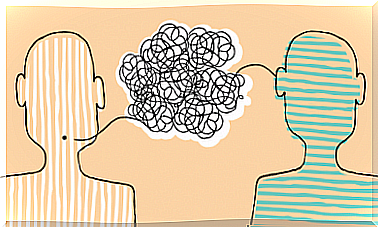Singing Also Makes Us Happy According To Science

In the shower, at home while we listen to music and nobody hears us, with friends … Singing also makes us happy, this universal practice fills us with serotonin and oxytocin, and is an injection of sensational enthusiasm available to everyone. Furthermore, it has been seen that even people with Alzheimer’s react and wake up with joy every time they are encouraged to sing.
Edith Piaf used to say that singing is a way of escaping to another world. However, psychologists and neuroscientists do not entirely agree with this idea; In reality, music therapy is a sensational channel to connect with others, to awaken those emotions that help us to establish more intense bonds with others.
For example, in a study published in The Journals of Gerontology it could be seen that when our elders start going to a community choir to sing, the feeling of loneliness is reduced and their health improves. We cannot ignore the fact that after 65 years of age, it is very common for this population group to have the risk of suffering from depression associated with social isolation.
Therefore, something as simple as being part of a group with which being part of the music improves interaction and generates very positive changes on an emotional, cognitive and also physical level. Likewise, it should be noted that everyday practices such as singing in the shower for ourselves also acts as a reset button capable of giving us energy, happiness and a good dose of positivity …

Singing also makes us happy because the brain loves music
Happiness, after all, is experienced through the simplest of acts. Good company, an afternoon of rest, a meal with friends… Now, singing also makes us happy because of a fact that is as basic as it is fascinating: our brain loves music.
- We could say that this love story with this ancestral art is something that has always accompanied humanity, and that science, for its part, strives every day to explain.
- On the other hand, the music theorist Leonard Meyer explains in his book Emotion and Meaning in Music that the brain experiences a kind of pleasant shock with each piece of music, with each note that we dare to sing when we sing aloud.
- It is an experience that challenges us at the same time that it gives us a pleasant feeling of security.
Furthermore, scientists point out that in our ears there is an interesting and basic structure for singing: it is the saccule. This small part of the inner ear responds to the frequencies that are created while we sing. This physiological response generates pleasure, these vibrations induce the brain to a state of calm as cathartic as it is beneficial, almost magical …
Sing to improve our mood
Pablo Picasso used to say that to paint and draw you have to close your eyes and sing. If we realize it, this practice, singing high or low, musing or humming is a recurring habit in many of us while carrying out other tasks. Thus, it is very common to sing while driving, while doing sports, tidying up the house or even when working.
Singing improves the mood. It releases endorphins, produces serotonin and also reduces our level of cortisol, the stress hormone. Likewise, studies, such as the one carried out at the University of Frankfurt; reveal that singing strengthens our immune system and even improves breathing, diaphragm flexibility, and lung health.
Now, one of the most notable benefits, which we have already referred to at the beginning, is the one it generates in people with neurodegenerative diseases. Furthermore, the “Alzheimer’s Society” in the United States, for example, has been carrying out what they call “Song for the brain” for years.
Singing has been seen to improve alertness in the elderly with this disease. It helps them to connect with others in a positive way, they enjoy themselves, they laugh, they are more receptive to communication and interaction, they are more focused on certain tasks and their mood improves.
On the other hand, another aspect that experts in the field of intellectual disability such as Tom Shakespeare and Alice Whieldon, from the University of East Anglia, have been able to verify is that people with mental problems benefit enormously from singing workshops. Stress and anxiety are reduced, they gain personal security and social skills.

We could say that, in a way, singing is that exercise for which our brain will always feel rewarded. Music is that other type of language that acts as something more than a merely cultural production . It is that space where we all agree, it is that type of communication where no words are needed.
It is also that corner of the brain that almost always remains intact in the face of diseases such as Alzheimer’s and Parkinson’s, and that allows us to make contact with what is most valuable in human beings: emotions.









